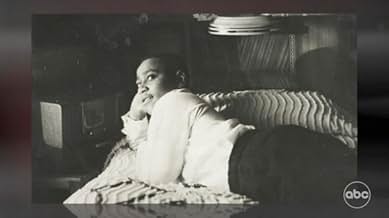Like many people of Generation X, the battered face of Emmett Till is how I understood the true power of the white supremacy and segregation in the southern US states. I remember seeing the pictures of him and thinking, "how could the human body be made to look like that? How did they change the very shape of his head???" I was a child, probably close in age to Emmett when he was murdered, but those pictures taught me about how hate dehumanizes. Hate took away Emmett's humanity, allowed his attackers to justify his beating and left him looking like something that could never have been human. It took away the humanity of the men who attacked him and the woman who ordered it. The pictures of this young boy from Chicago taught me everything I needed to know about the evil people are capable of creating... but what was the rest of the story?
This documentary puts those pictures in perspective. It creates a timeline that is so very close to today. When you see interviews with Mamie Till-Mobley from 2002, and you realize Emmett would have only been about 60 years old in 2002 if he had lived. His murder was well within the modern age.
'Let the World See' shows the bravery of a woman who will not let what happened to her son happen to another person. It shows a community and family who stood by her side. You will be left able to understand the legacy Emmett shared from his time living on this earth and the legacy of his death. Throughout this main storyline, viewers are also introduced to the Black exodus to Chicago, and the communities shared between populations still in the south and those in the city.
On the other side, 'Let the World See' shines a surprisingly gentle light on the racial hate that ran strongly throughout the south. Realistically, if you are having trouble understanding institutional racism or the racism found in white supremacy, you may find this documentary takes leaps regarding race that you may not like. Personally, I thought the discussions of racism were largely personal experience or well-documented instances, so anybody against racism should be able to get something from this series.
In three episodes this documentary tells the story of what brought Emmett Till to that store in Mississippi, the defiance and dignity of the people who brought his suffering to the public awareness, and the incredible repercussions of this bravery. Worth the watch 100%













